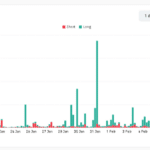By STEPHEN LABATON
Published: January 24, 2009
New York Times
WASHINGTON — The Obama administration plans to move quickly to tighten the nation’s financial regulatory system.
“Our regulatory system failed to adapt to the emergence of new risks,” wrote Timothy F. Geithner, center, Treasury secretary nominee.
Officials say they will make wide-ranging changes, including stricter federal rules for hedge funds, credit rating agencies and mortgage brokers, and greater oversight of the complex financial instruments that contributed to the economic crisis.
Broad new outlines of the administration’s agenda have begun to emerge in recent interviews with officials, in confirmation proceedings of senior appointees and in a recent report by an international committee led by Paul A. Volcker, a senior member of President Obama’s economic team.
A theme of that report, that many major companies and financial instruments now mostly unsupervised must be swept back under a larger regulatory umbrella, has been embraced as a guiding principle by the administration, officials said.
Some of these actions will require legislation, while others should be achievable through regulations adopted by several federal agencies.
Officials said they want rules to eliminate conflicts of interest at credit rating agencies that gave top investment grades to the exotic and ultimately shaky financial instruments that have been a source of market turmoil. The core problem, they said, is that the agencies are paid by companies to help them structure financial instruments, which the agencies then grade.
“Until we deal with the compensation model, we’re not going to deal with the conflict of interest, and people are not going to have confidence that the ratings are worth relying on, worth the paper they’re printed on,” Mary L. Schapiro said in testimony earlier this month before being confirmed by the Senate to head the Securities and Exchange Commission.
Timothy F. Geithner, the nominee for Treasury secretary, made similar comments in written and oral testimony before the Senate Finance Committee.
Aides said they would propose new federal standards for mortgage brokers who issued many unsuitable loans and are largely regulated by state officials. They are considering proposals to have the S.E.C. become more involved in supervising the underwriting standards of securities that are backed by mortgages.
The administration is also preparing to require that derivatives like credit default swaps, a type of insurance against loan defaults that were at the center of the financial meltdown last year, be traded through a central clearinghouse and possibly on one or more exchanges. That would make it significantly easier for regulators to supervise their use.
Officials said that the proposals were aimed at the core regulatory problems and gaps that have been highlighted by the market crisis. They include lax government oversight of financial institutions and lenders, poor risk management efforts by banks and other financial companies, the creation of exotic financial instruments that were not adequately supported by their issuing companies, and risky and ill-considered borrowing habits of many homeowners whose homes are now worth significantly less than their mortgages.
“I believe that our regulatory system failed to adapt to the emergence of new risks,” Mr. Geithner said in a written response to questions that was made public on Friday by Senator Carl Levin, Democrat of Michigan. “The current financial crisis has exposed a number of serious deficiencies in our federal regulatory system.”
The regulatory changes are a major piece of a broader package being prepared by the new administration to address the market crisis. Another piece to be issued soon will provide the strategy for how the government will go about repairing the declining banking industry. Congress recently approved the second $350 billion in spending from the Troubled Assets Relief Program.
The White House has come under increasing political and market pressure to disclose how it intends to manage the program, and there is nervous expectation on Capitol Hill that the administration will need to spend more than $350 billion. That plan is expected to focus on reducing foreclosures, revising the bank bailout program, and buying or issuing guarantees for the rapidly deteriorating assets that have been discouraging more private investment in the banks.
“We want to make sure that the standardized part of those markets move into a central clearinghouse and onto exchanges as quickly as possible,” Mr. Geithner testified. “I think that’s really important for the system. It will help reduce risk and the system as a whole.”
The new trading procedures for derivatives could also enable regulators to impose capital and collateral requirements on companies that issue credit default swaps that would make them safer investments. American International Group, one of the largest issuer of such swaps, never had to post collateral and nearly collapsed as a result of issuing a huge volume of such instruments that it was unable to support.
Administration officials have begun to study ways to control executive compensation.
For example, they are preparing proposals to limit executive pay at companies that receive money under the bank bailout program. In response to written questions by Senator John Kerry, Democrat of Massachusetts, Mr. Geithner said that in such circumstances the administration was planning to set a limit and that any compensation over that amount would “be paid in restricted stock or similar form that cannot be liquidated or sold until government assistance has been repaid.”
“Excessive executive compensation that provides inappropriate incentives,” Mr. Geithner said, “has played a role in exacerbating the financial crisis.”
Sunday, January 25, 2009
Subscribe to:
Post Comments (Atom)




No comments:
Post a Comment